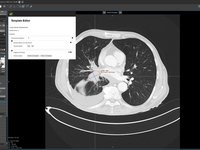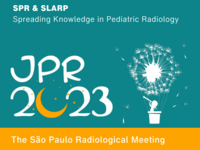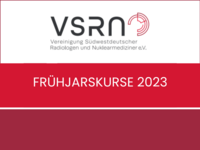Customizing structured data collection with mint Lesion Template Designer
We are thrilled to announce a forthcoming addition to mint Lesion: the Template Designer. This feature will transform the way users interact with our platform by enabling them to create and adjust…
JPR 2023 - The São Paulo Radiological Meeting
JPR is the largest congress of the specialty in Latin America, held by the Radiological and Diagnostic Imaging Society of São Paulo (SPR)
The Garmisch Symposium International 2023 - Radiology and Integrated Diagnostics
The Symposium offers an exciting scientific and clinical program with excellent, internationally renowned speakers.
The HIMSS 2023 Global Health Conference & Exhibition
Together with Brainlab and Visiontree we'll showcase how we enable the consistent collection, visualization and analysis of imaging data.
Improving Cancer Care Through Standardization: Interview with Prof. Thomas Kröncke on the BZKF Project BORN
The Bavaria-wide oncological radiology network (BORN) Project was launched on August 1, 2022, with the objective of improving cancer care in Bavaria by standardizing imaging and reporting. Through…
Optimizing Clinical Trials without Compromising Patient Care: An Investigational Site’s Perspective
Attracting and retaining industry-sponsored clinical trials can be quite appealing for healthcare institutions. Besides obvious financial and reputation benefits, participating in clinical trials…
ECR 2023 - The European Congress of Radiology
Europe's largest radiology congress promises an exceptional collection of sessions, lectures, courses, and an array of additional activities.
Compliance
Compliance Mint Medical GmbH is a subsidiary of Snke Holding SE. Headquarters of Snke Holding SE Olof-Palme-Straße 9 81829 München Deutschland Mint Medical and Snke are committed to high…
VSRN 2023 - Spring Meeting of the Association of Southwest German Radiologists and Nuclear Medicine Professionals
The congress features a variety of courses, hands-on workshops and a specialized industry exhibition. The event is in German.
Closing the Care Gap by Shaping the Future of Evidence-Based Medicine
Healthcare still lags behind other economic sectors in terms of digitalization. Despite significant advancements in diagnostic and therapeutic methods, such as new imaging technologies and…








